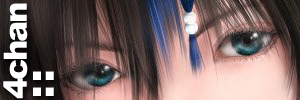| >> |
01/30/10(Sat)11:47 No.52947At
the end of Capitalism: A Love Story, Moore makes a pronouncement:
"Capitalism is an evil, and you cannot regulate evil. You have to
eliminate it and replace it with something that is good for all people
and that something is democracy." Michael Moore once planned to be a
priest. In his youth he was drawn to the Berrigan brothers, a pair of
radical priests who pulled anti-Vietnam war stunts such as pouring
blood on military service records. In an instructive moment for Moore,
the brothers made clear they weren't just protesting against the war,
but against religious organisations that kept silent about it.
These
days he disagrees with Catholic orthodoxy exactly where you would
expect him to – he supports abortion rights and gay marriage – but he
credits his Catholic upbringing with instilling in him a sense of
social justice, and an activism tinged with theatre that lives on his
films.
But what does it mean, to replace capitalism with
democracy? He sighs and tries to explain. In the old Soviet bloc, he
says, communism was the political system and socialism the economic.
But with capitalism, he complains, you get political and economic
rolled in to one. Big business buys votes in Congress. Lobbyists write
laws. The result is that the US political system is awash in capitalist
money that has stripped the system of much of its democratic
accountability.
"What I'm asking for is a new economic order,"
he says. "I don't know how to construct that. I'm not an economist. All
I ask is that it have two organising principles. Number one, that the
economy is run democratically. In other words, the people have a say in
how its run, not just the 1%. And number two, that it has an ethical
and moral core to it. That nothing is done without considering the
ethical nature, no business decision is made without first asking the
question, is this for the common good?" |

